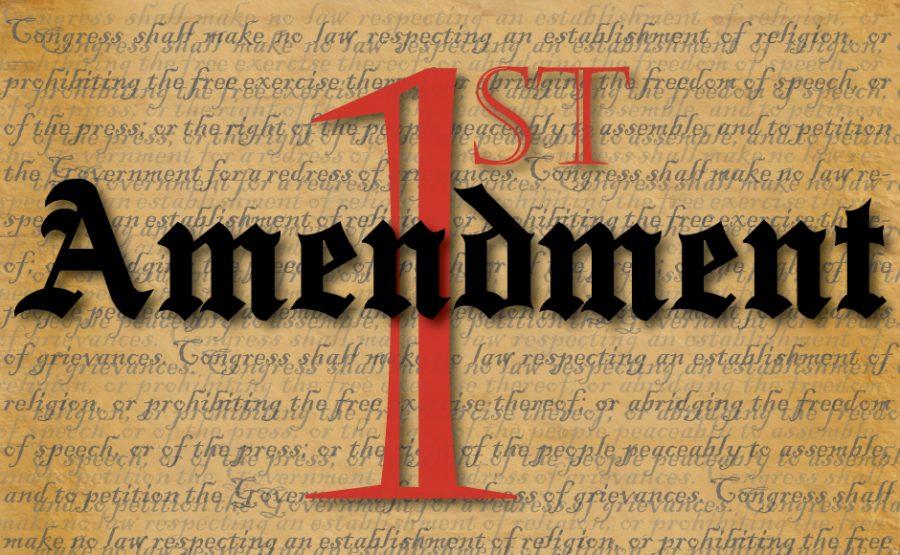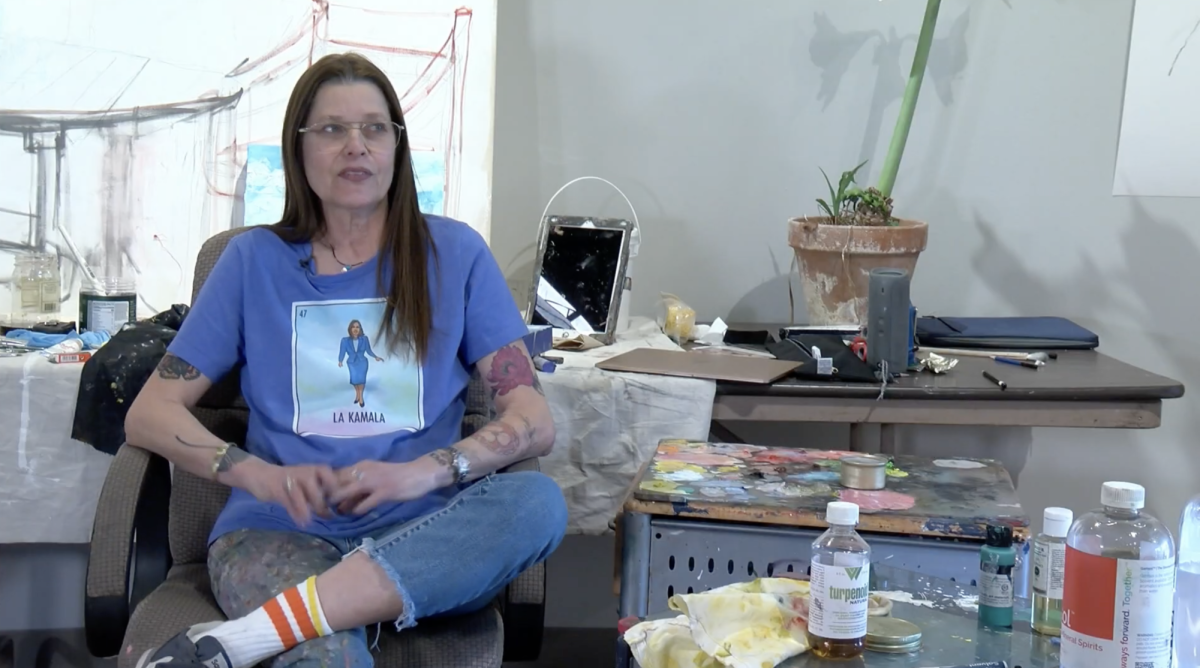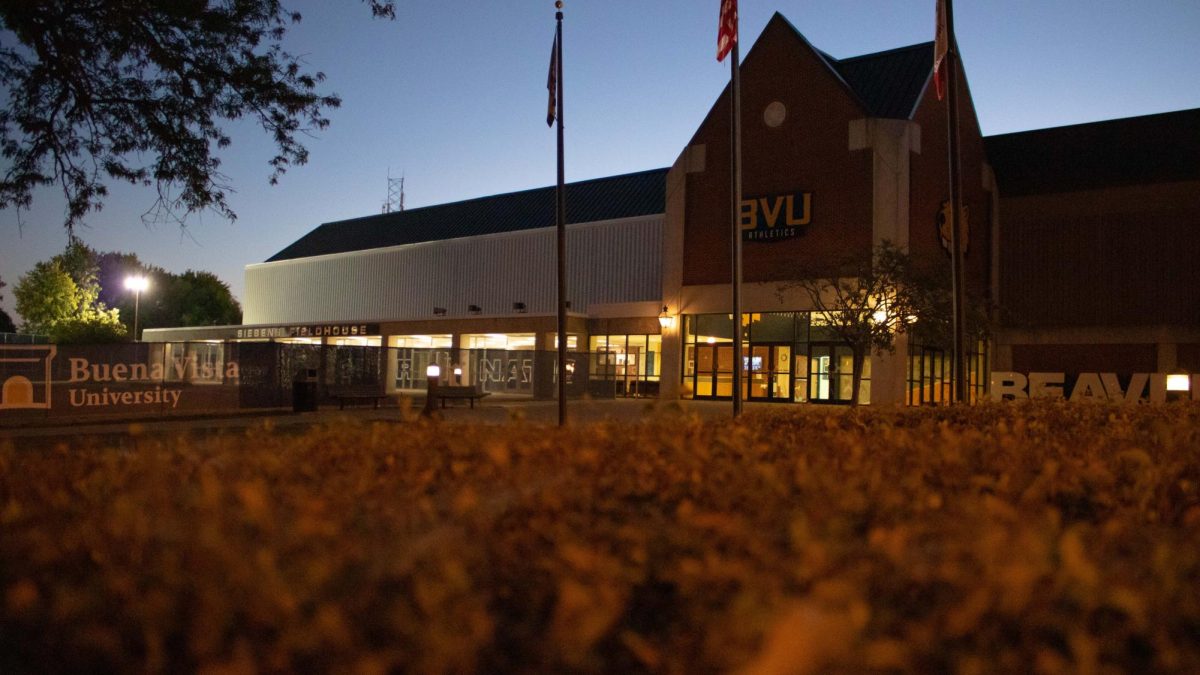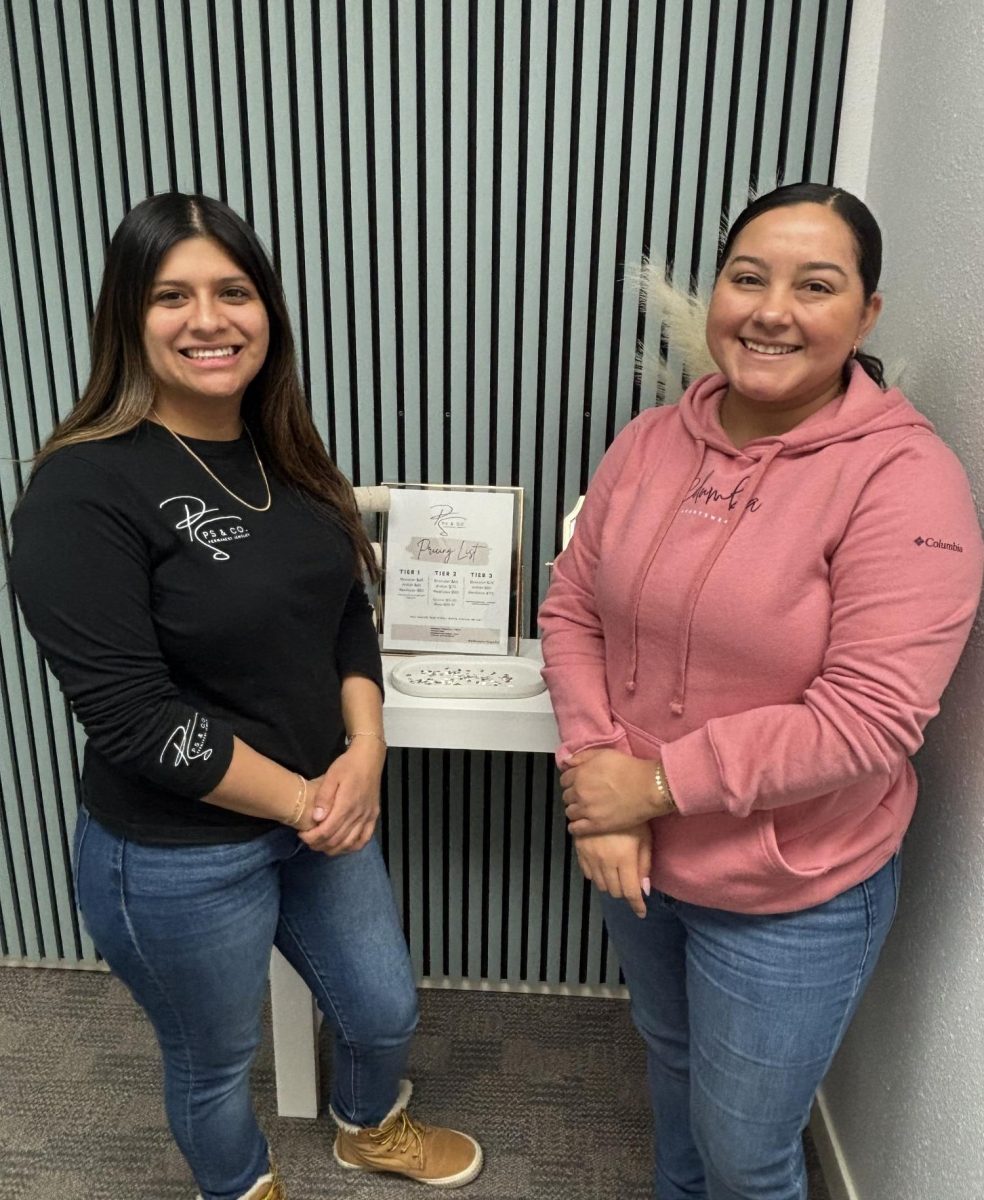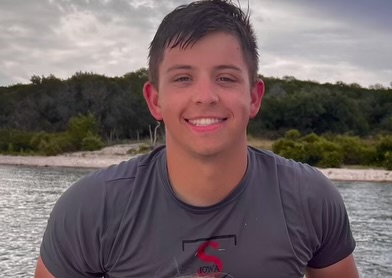[Joel Sikora] Welcome to the Five Freedom Report, your source for current events regarding the cornerstone of our democracy – the First Amendment.
We’ll dive into current events regarding our freedoms of speech, assembly, religion, petition, and the press, shedding light on topics to inform socially responsible citizens. Join us as we explore the intricacies of the five freedoms that form the bedrock of our democratic ideals.
This episode will delve into the areas of book banning, protests, and a gag order on former president Donald Trump.
I’m Joel Sikora, joined by Joceline Medina and Jaxon Van Pelt.
[Bill Feis] With free speech comes responsibility and that people just can’t say what they want to say because it’s harmful, it’s untruthful…
[Jaxon Van Pelt] Dr. Bill Feis, a professor of history at Buena Vista University, gives his take on the First Amendment given his in-depth knowledge of the history of the United States. Free speech has been a hot topic for many years. Social media has arguably been at the center of free speech debates since the first app or platform was created. What is protected speech? What can and can’t be said online? These questions have been asked over and over as the people of the United States try to discern certain controversial topics.
Perhaps one of the most controversial figures of our time, maybe ever, is Donald Trump. Recently, Trump has been brought to court as a defendant in multiple cases. Two of these include a fraud case in New York and the federal election interference case concerning the events of January 6th. In both cases, Trump was issued a “gag order” by the respective judges.
A gag order is defined as “a judge’s order that a case may not be discussed in public” according to the Oxford English Dictionary. These orders are usually issued in order to protect witnesses from harm and juries from being influenced outside the courtroom.
In the case of Donald Trump, the judges did not want him to post on his social media any words or accusations that targeted certain individuals. In the New York case, Trump posted on Truth Social, claiming the judge’s clerk was a “girlfriend” of Senate Majority Leader Chuck Schumer. After this, the judge in the case issued the gag order. As for the January 6th case, Trump was issued a gag order before the case began, the judge presiding over the case outlawing him from the “targeting” of individuals.
Targeted speech is not protected under the First Amendment. The Amendment does not grant us the right to say whatever we want, even though that is how some Americans think it is written. In Trump’s circumstance, his targeted posts can inspire those who follow him to commit acts of harassment, and sometimes even death threats can occur directed towards those that Trump names in his posts.
It was after the gag order in the January 6th case that the American Civil Liberties Union stepped in. The ACLU, who sued the former president or his administration over 400 times while Trump was in office, told the judge that the order restricts Trump’s right to free speech. Three ACLU attorneys wrote to the judge including Senior Staff Attorney Brett Max Kaufman. Kaufman illustrates the ACLU’s stance on the gag order.
[Brett Max Kaufman] One point we made is that the word target is not clear enough for the purposes of restricting someone’s speech like this. It’s a vague term that doesn’t tell Trump or the public what he’s allowed to say and what he’s not.
[Van Pelt] The ACLU feels that the order is overbroad in the fact that it restricts topics like witness testimony and the events of January 6th from being talked about publicly by Trump. With Trump looking to be elected for President once again, the ACLU believes it is more important than ever to properly apply the First Amendment.
[Kaufman] Those are matters that are part of the public debate and part of the presidential campaign and so it simply is just overbroad to say that Trump can’t talk about those events publicly while the trial’s happening.
[Van Pelt] Trump will undergo an appeal regarding the January 6th gag order where both parties will submit their arguments as to why an appellate court should re-impose, edit, or strike down the order. Those oral arguments are set for later this month.
So, who’s right? That answer is open for interpretation. One Buena Vista student said, “If [Trump] wants to criticize government officials, he’s got every right to,” referring to the judges, their staff, and special counsels. For now, we are left to see what will be allowed for Trump to post and how this process will affect both the cases against him and his Presidential campaign.
The whole ordeal brings up questions of what should be allowed on social media and what should and should not be protected. Should there be limits on what can be said online like there is in person? Dr. Feis explains what he believes the future holds surrounding the issue.
[Feis] And I think what we’re seeing with social media is we’re now again testing the boundaries of what exactly is free speech. I think we’re in for a big reevaluation of what free speech actually is.
[Van Pelt] Social media can make speech harmful in how easy it can be to spread misinformation and hateful words. It’s a new problem that will likely continue to be seen in elections, courts, and the lives of everyday Americans as we as a country look to define free speech versus hateful or targeted speech in an online world.
[Sikora] It is not out of the ordinary in America to see citizens exercising their rights to assemble, to speak freely, and to petition their government – nor is it out of the ordinary to see citizens questioning these rights as a result.
One of the latest examples of this is in response to the recent events that unfolded in the Gaza Strip.
On October 7, 2023, Israel sustained an attack from Hamas, a group designated as a terrorist organization by the United States
Following Israel’s declaration of war, President Biden announced that they had the United States’ full support.
[Joe Biden] When I spoke with Prime Minister Netanyahu this morning, I told him the United States stands with the people of Israel in the face of these terrorist assaults. Israel has the right to defend itself and its people full stop. There is never justification for terrorist attacks. In my administration, in support for Israel, security is rock solid and unwavering.
[Sikora] Over the last month, the United States has continued with this support through billions of dollars in aid towards Israel.
Despite this, some Americans are strongly opposed to what is being done by the Israeli government.
Dr. Melanie Hauser, Buena Vista University Chaplain, explains this difference in opinion.
[Melanie Hauser] In order to get rid of Hamas, Israel is bombing places in Palestine and there ends up being civilian casualties. And so I think that people who are rising up in support of Palestine are saying, look, there’s these horrible civilian casualties going on and people who are just trying to live their lives, and who are being attacked and bombed by Israel.
[Sikora] Buena Vista alum Morgan Krull is one such person.
[Morgan Krull] There’s a long history, so it’s a political issue, but to me, it’s more of a human issue. I agree with the people who are calling it a genocide or an ethnic cleansing. It’s so hard to describe, like, what you see every day and I’m not even part of it. I’m just watching it through a screen and it’s been horrifying to me and it’s affected me a lot.
[Sikora] Krull is not alone. Over the past month, there have been numerous stories of protesters at colleges, government buildings, and news organizations. While some have found the protests objectionable, they highlight our First Amendment freedoms and demonstrate the extent to which our speech and actions are covered.
For example, a demonstration which took place within the US Capitol resulted in approximately 300 being arrested.
Contrary to popular belief, the capitol building is not free to access by the public at any time. There are rules and limitations that apply, according to the US Capitol Visitor Center, which is what the demonstration was in violation of.
Still, there are countless other protests and counter-protests that have taken place which were completely within the realm of what the constitution covers. The most important things to consider are the place and method and whether any violations are present.
Krull believes in the power of the First Amendment, that people should advocate for their beliefs, specifically, in Krull’s case, to advocate for the people of Palestine.
[Krull] There’s a lot of discussion right now about college students protesting and consequences that they’re facing for voicing support for Palestine or Israel. So I know that there’s that protests are pretty prevalent, it’s really important that Americans exercise their First Amendment rights to support the people of Palestine.
[Sikora] Whether advocating Israel or Palestine, it is important for citizens to know their rights, which, under the constitution, should not be infringed.
[Sikora] Book banning is an issue at the forefront of American educational discourse. Joceline Medina shares how this is having an impact at the state level
[Joceline Medina] Over 450 books have been pulled from the shelves of public school districts in Iowa, according to a database by The Des Moines Register, since the passage of Senate File 496 in May, which mandated the removal of books with “descriptions or visual depictions” of ‘sex acts’ from school libraries. Identical legislation has been passed by Republican states across the nation.
The American Civil Liberties Union (ACLU) of Iowa has criticized the law for its use of “vague, highly problematic language.”
According to a 2023 report by PEN America, laws with vague language regarding their implementation and the addition of potential punishments for educators who violate the law, “deep[en] an environment of censorship, where fear and intimidation lead to an overly cautious response.”
Dr. Carlos Acosta-Ponce, Assistant Professor of English at Buena Vista University, believes that censorship goes against everything he does as an educator.
[Carlos Acosta-Ponce] “One of the reasons that I went through the process of getting a Ph.D. and coming to do all these things is to, you know, help students explore these questions that are very, you know, central to who they become as citizens, as people, as human beings.”
[Medina] The nationwide effort to ban books believed to have objectionable content can be attributed to organized efforts, mainly of advocacy groups; elected officials; and enacted legislation presented as actions taken to protect children and parental rights. An advocacy group that has been the center of the conversation and whose actions have made a big influence in the book bans across the nation is Moms for Liberty.
Jennifer Turner, the Polk County Chapter Chair for Moms for Liberty, however, argues that this isn’t a book ban.
[Jennifer Turner] “It’s common sense on what belongs in our schools. I don’t want them to quit producing books, printing them. They can keep them in public libraries…because that’s all parental choice when they walk into these schools. Parents have no idea what content kids can get their hands on.”
“Parents do have the ultimate authority as our children, right? We are responsible for their upbringing and what morals and values we want to instill.”
[Medina] On the other hand, Acosta-Ponce, father of a four-year-old himself, says:
[Acosta-Ponce] “I think parents have the right to make decisions for their children, but I think they have the obligation to make the best decision for their child or children. Now to get that to the level of decisions about curriculum and what gets done in the classroom, I am sad to say that most parents don’t have the qualifications to make these decisions.”
[Medina] In accordance with this view, the ACLU states “Parents of schoolchildren have control over what their child reads, and they can work with their student’s teacher and school to limit their access to certain books. But schools should not remove access to these books for all children in the classroom or school.”
Among other criticisms of the law are that many of the books being pulled are written by or about BIPOC and LGBTQ+ individuals, leading to the erasure of these groups. According to PEN America, of the 3,362 instances of books banned in the U.S. during the 2022–23 school year, 30 percent include LGBTQ+ characters or themes and the same percent include characters of color or discuss race and racism.
Among other provisions under the new Iowa law include the restriction of instruction on gender identity and sexual orientation from grades K-6, representing one of many pieces of legislation in Iowa impacting the LGBTQ+ community this year.
[Acosta-Ponce] “You’re harming LGBTQ+ children by not allowing them to understand who they are, and I think that’s a disservice.”
[Medina] Caitlyn Ebert, President of Alliance, the student organization on campus for LGBTQ+ individuals and allies says:
[Caitlyn Ebert] “We’re in this boat where we’re trying to regress back and just erase these communities that we can so they don’t exist when in reality, they’re more apparent than ever.”
[Medina] So far, there has been a 33% increase in school book bans and restrictions in the U.S. from the previous school year, and reports by PEN America show no signs of slowing.
[Sikora] Thank you for tuning in to the Five Freedom Report, your source for current events on First Amendment issues. Until next time, stay informed, and don’t be afraid to use your voice.
I’m Joel Sikora, joined by Joceline Medina and Jaxon Van Pelt.



